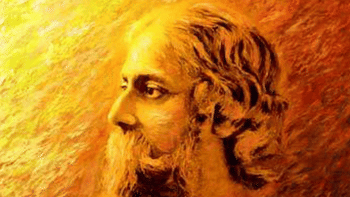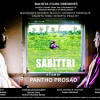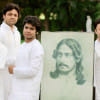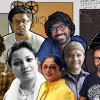‘Non-communal Spirit and Nazrul’: Honouring the Rebel Poet’s clarion call for equality

Widely known as the "Rebel Poet", Kazi Nazrul Islam's defiant voice championed humanitarian values, railing against religious extremism, exploitation, and discrimination. On his 125th birth anniversary, a rich tribute was paid to our national poet through a three-day event, titled "Non-communal Spirit and Nazrul".
Organised by Kabi Nazrul Institute, under the initiative of the Cultural Affairs Ministry, the event was inaugurated on May 25 at the Bangladesh National Museum in the presence of Md Kamruzzaman, director general, Bangladesh National Museum; Mofidul Hoque, a founder trustee of the Liberation War Museum; Khalil Ahmed, secretary, Ministry of Cultural Affairs; and Naheed Ezaher Khan, state minister of Cultural Affairs, among other prominent figures of the country.

The closing ceremony took place yesterday afternoon (May 27), featuring a discussion meeting and cultural programme, at the Begum Sufia Kamal Auditorium. Dr Kamal Abdul Naser Chowdhury, advisor to the prime minister on Education and Cultural Affairs, was present as the chief guest of the event. AFM Hayatullah, executive director of Kabi Nazrul Institute, delivered the keynote speech, while Khalil Ahmed, secretary, Ministry of Cultural Affairs, presided over the session.
Speakers highlighted how Nazrul's lyrics served as a rallying cry during Bangladesh's 1971 Liberation War against Pakistani oppressors. His songs infused the freedom fighters with the spirit of equality and secularism that his poetry espoused.

"Nazrul was born with extraordinary talent. His works are illuminated with the spirit of equality and brotherhood," said Dr Naser. "Through his writings, he tried to combat religious bigotry."
Dr Kamal recounted the incident where Ekushey Padak recipient and renowned litterateur Ibrahim Kha urged the young Nazrul to write as a "Muslim poet". But Nazrul boldly responded, "I want to be a poet of humanity and egalitarianism." This progressive stance cemented his stature as a poet transcending divisions.
Highlighting the universal appeal of Nazrul's poetry, Dr Kamal, who is also a poet, stressed the need to expand translation efforts to present the rich literary heritage of Bengal on the global stage. He urged bringing masterpieces of Bangla literature, including Nazrul's transcendent works, to readers across the world through high-quality translations. This would not only honour the genius of pioneers like the Rebel Poet but also facilitate a wider appreciation and understanding of the region's literary and cultural legacy among international audiences.

Renowned Nazrul Sangeet exponent Sadya Afreen Mallick, the special guest, said, "Nazrul rebelled against all injustices and discrimination. He pledged to break down walls dividing people and establish equal rights, irrespective of race, religion or gender."
The non-communal spirit that was Nazrul's guiding light still shines bright, drawing people across faiths to celebrate his anniversary. As Hayatullah noted, the iconic poet's message of humanism and unity is increasingly relevant today.

After the discussion, a vibrant cultural programme showcased diverse talents carrying forward Nazrul's legacy through songs, dances, and recitations. The event also announced the publication of "Aboshshik Nazrul", an anthology compiling the poet's works, which will later be translated into English.
As we commemorated our greatest poet's birth anniversary, Nazrul's thunderous voice reverberated – a timeless call to rise above petty orthodoxies and embrace the brotherhood of humanity.

 For all latest news, follow The Daily Star's Google News channel.
For all latest news, follow The Daily Star's Google News channel. 









Comments